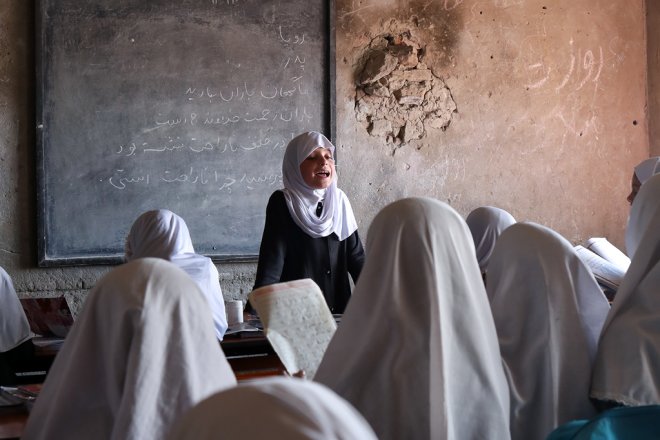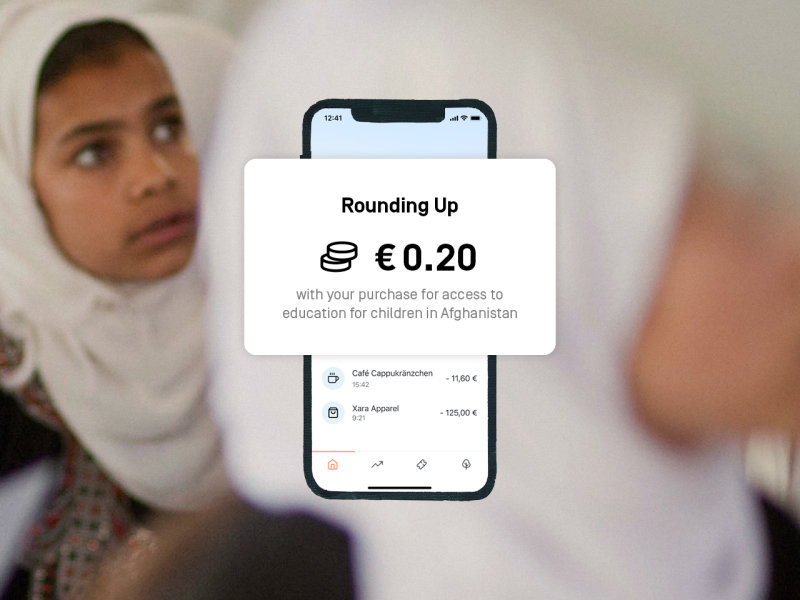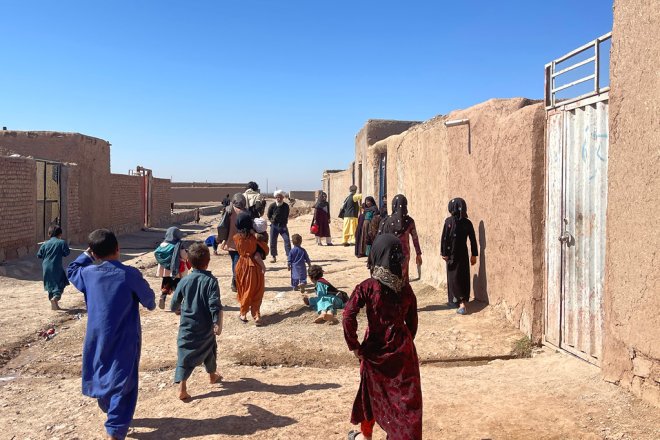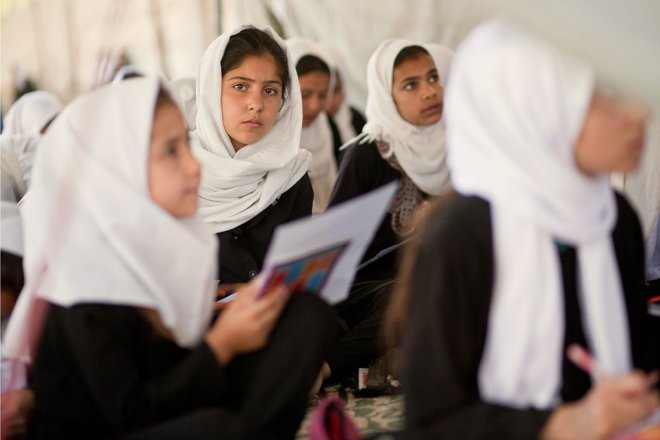With your help, we are supporting a new project as part of our Rounding Up feature: together with Visions for Children e.V., we are providing pupils from Muaz Bin Jabal Middle School in the province of Kabul, Afghanistan with access to high quality education and improved learning conditions. Read on to find out why we chose this project and how your donations are making a difference.
With our Rounding Up feature, since the end of 2021 you have been able to round up any payment you make with your Tomorrow card to the nearest euro – meaning that your remaining cents are donated to climate justice projects and those affected by current crises. What works out as just a few cents for each individual actually makes up a large collective sum that has a huge impact and can really bring about change. Thanks to your help, we have already been able to fully finance the first few projects.
Climate injustice in Afghanistan
Afghanistan is bearing the brunt of the climate crisis, despite not really contributing to it. Because although the country makes up 0.49% of the global population, it is responsible for just 0.03% of global carbon emissions. The consequences of climate change are hitting Afghanistan especially hard because of its geographic location that puts it at risk of regularly occurring natural catastrophes, and also its tense political situation, which means it can offer little protection to the people living there. As a result, the country has a lack of (monetary) resources needed to counter the effects of the climate crisis and the [PH1] ongoing political conflicts. The Taliban regime is also hampering access to independent information about the climate crisis and how to mitigate its effects on a long-term, strategic level.
As a result, in the project region of Paghman in particular, the majority of people are affected by climate-related issues such as crop shortfalls, an increased risk of famine and financial losses. The small harvests are usually only enough to cover personal needs and aren’t enough to be sold, which is further exacerbating the economic situation of the Afghan people. Given the increasingly difficult living conditions in Afghanistan, education is a pivotal factor in opening the doors to other employment opportunities.
Our new Rounding Up project with Visions for Children e.V.
Worldwide, around 258 million children do not attend school. And 262 million children, despite attending primary school, cannot properly read, write or do basic math. Visions for Children e.V. is a Hamburg-based non-profit organization whose vision is a world in which every child is offered a basic education.
- Image 1

© Visions for Children e.V. (Picture 1,2: Nasir Faizy; Picture 3: Rada Akbar, Picture 4: Suliman Salehi)
Visions for Children e.V. is therefore committed to improving learning conditions in crisis and war zones where there is often a lack of basic resources. School buildings are expanded, sanitary conditions improved, and pupils and teachers equipped with the necessary learning materials and training. The focus of their work lies on projects in Afghanistan and Uganda, always in close cooperation with local partners. This is how Visions for Children e.V. creates the necessary framework for a high-quality teaching and learning environment in line with the fourth Sustainable Development Goal of the United Nations’ Agenda 2030 and provides pupils with the skills and knowledge to build their own future.
The project for Muaz Bin Jabal Middle School in the province of Kabul aims to tackle the climate injustices and social challenges that the country and Paghman [PH2] in particular are facing by improving the level of education it provides. With these measures, the project will give a total of 350 pupils access to a good education:
The addition of eight new classrooms will extend the school, enabling it to accept even more pupils. This should help to improve the learning outcomes of the pupils and offer them better opportunities for the future.
Extending the sanitary facilities and providing hygiene workshops will improve hygiene and sanitary conditions for pupils and teachers.
New further training offers will improve the quality of teaching provided by the nine teachers employed there.
A school development council will be given training in managing and maintaining the school’s infrastructure and resources in the long run.
Thanks to these long-term measures, it is not only the directly affected 350 pupils and nine teachers who will profit from these improved school structures, new buildings, and well-trained teachers, but also their families and future generations of pupils.
We value transparency: We – meaning: the Tomorrow Foundation gGmbH and the respective NGO – charge the costs that arise at Tomorrow GmbH through the Rounding Up support, for example for the transaction fees. This is how we, as Tomorrow GmbH, also generate income in order to be able to sustainably establish Rounding Up as an independent impact driver in the long term. We base the fee on the evaluation of the Charity Watch organization. We plan to stay below 25% of the total amount on an annual average and are therefore rated with top grade (A) by the NGO.




